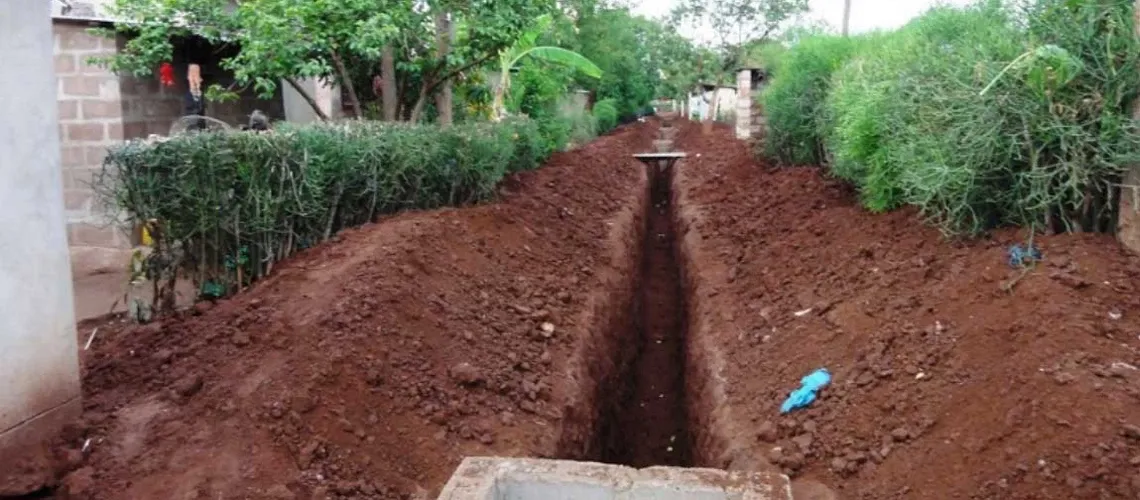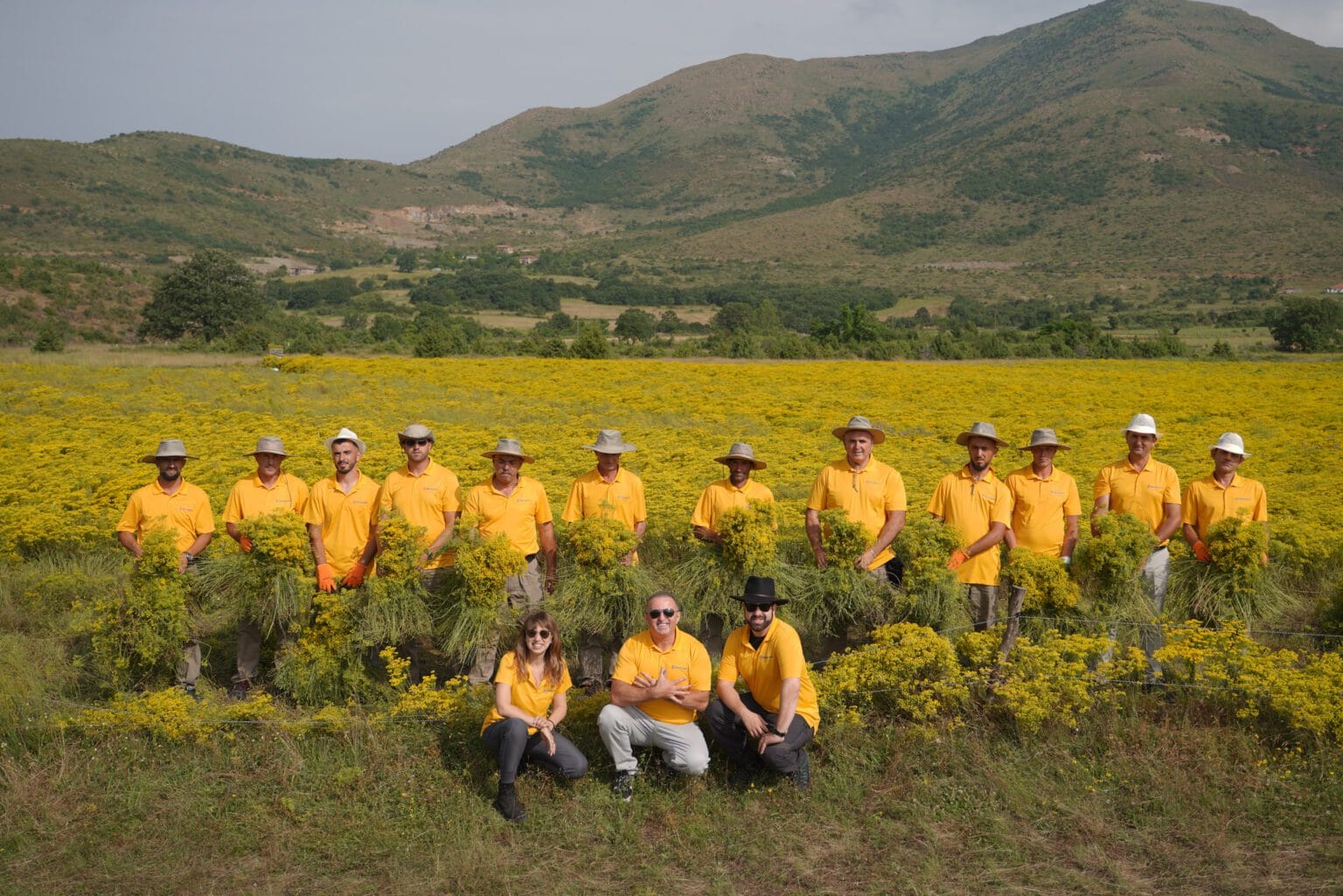New study confirms Brazil’s plummeting poverty rate
The Brazilian Observatory for Inequality study has found that the number of Brazilians living in extreme poverty dropped by 40% between 2022 and 2023. A similar study by thinktank Fundação Getulio Vargas reported a 50% decline in poverty between 2021 and 2023. Both studies used federal data and attributed the decline to Lula's Bolsa Família financial aid program. Brazilian Report
Mexico enshrines right to 'adequate' food
Mexico’s new “General Law on Adequate and Sustainable Nutrition” prioritises the right to nutritious, safe, sufficient, quality, and culturally appropriate food. It also guarantees elementary school students have access to free or affordable meals at school and aims to reduce food waste. Food Politics
China’s war on air pollution yields 'tremendous' results
Since the government launched its multi-million dollar initiative to reduce air pollution in 2014, overall particulate pollution levels have declined by 41%. In Beijing-Tianjin-Hebei (BTH), the most polluted region in Mainland China, particulate levels declined by 45% between 2014 and 2022. The average Chinese citizen can expect to live two years longer thanks to these improvements. AQLI

India is a model for global tuberculosis control
Increased funding and community efforts across India have led to significant progress in controlling the world’s top infectious-disease killer. Innovative screening and treatment methods, shorter drug regimens, and the introduction of portable, AI-assisted X-ray equipment, have improved TB detection and treatment completion rates. New York Times 🎁
Poland announces new guidelines reaffirming legality of abortion
Previously, abortion was only possible in the case of a pregnancy that was the result of rape or incest or in a situation of extreme danger to a pregnant woman's health. The new guidelines now say that a recommendation by one specialist doctor, including a cardiologist, endocrinologist or psychiatrist, is basis enough for a woman to obtain a legal abortion in hospital. Euronews
Declines in stillbirths and neonatal and infant mortality in England
The Office for National Statistics says the infant mortality rate has declined from 6.3 deaths per 1,000 live births in 1993 to 3.9 today, and the neonatal mortality rate has fallen from 4.2 deaths per 1,000 live births to 2.7. Stillbirth rates have also fallen since 2005. The UK government is aiming to achieve a 50% reduction in stillbirth and neonatal mortality rates in England by 2025. Nuffield Trust
Efforts to improve sanitation in Zambia’s capital exceed expectations
The Lusaka Sanitation Project, a public-private partnership, has improved sanitation for approximately 345,000 people. It has also enhanced faecal sludge management for 263,898 people, and expanded the sewer network by 117 km. These efforts have resulted in a reduction in waterborne diseases and improved environmental hygiene. World Bank

France wants to give teens a digital pause
The government is trialling a ban on mobile phones for pupils up to the age of 15 across 200 schools, following the publication of a 140-page report that concluded that the “hyper” use of phones was not only bad for children but also for “society and civilisation”. If successful, the trial could be rolled out nationwide from January 2025. Guardian
Cigarette smoking in the United States is at an 80-year low
When Gallup first asked about cigarette smoking in 1944, 41% of U.S. adults said they smoked. In the most recent Consumption Habits poll, 11% of U.S. adults say they have smoked cigarettes in the past week, matching the historical low of 2022. A major reason for the decline is that cigarette smoking has plunged among young adults, previously the most likely age group to smoke. Gallup
China, United States hold talks in bid to start normalising relations
U.S. National Security Adviser Jake Sullivan held wide-ranging talks with General Zhang Youxia, Vice Chairman of the Central Military Commission, as part of a three-day trip to strengthen communication between the world powers on issues ranging from Taiwan, to Russia and Gaza. “It’s rare that we have the opportunity to have this kind of exchange.” Aljazeera
Ada Palmer - A history of saving the world
Ada Palmer is a historian and the author of the sci-fi series Terra Ignota, and has been on our wish list for the podcast for a while. She's the history teacher that you'll wish you had - when she talks about Machiavelli and Shakespeare, it's as if she met them for coffee last week. For us, she speaks more lucidly, and eloquently, on the subject of progress than almost anyone we've ever met.
From where we were in the Renaissance, to where we might end up 2454, this conversation is probably the 'biggest' one we've ever had on Hope Is A Verb. We travelled centuries in just 35 minutes - but that's Ada for you! What she reminds us of, again and again, is how much better things look when you take a longer view. This one is so good. Here's one of her ideas that really resonated:
Progress is not inevitable, but it is happening. It is not transparent, but it is visible. It is not safe, but it is beneficial. It is not linear, but it is directional. It is not controllable, but it is us. In fact, it is nothing but us.

More good news you didn't hear about
- No country in the world today has a higher fertility rate than it did in 1950.
- Health authorities have launched an ambitious polio vaccination campaign in Gaza to vaccinate 640,000 children under ten.
- An experimental malaria vaccine has demonstrated long-term protection for pregnant women for the first time.
- An aerial piping system in Nairobi, Kenya has drastically reduced waterborne illnesses by providing clean water to 40,000 people.
- The average American worker is out-earning inflation by $1,400 a year, as median weekly earnings have climbed 24% since 2014.
- Biden’s IRA and CHIPS Acts are supercharging manufacturing construction and clean power deployment, while reviving public investment.
- The real immigration crisis? Not enough immigrants.
- US data consistently shows a decrease in crime and that America schools have become less violent since the end of the pandemic.
- Nigeria’s president has announced plans to expand the provision of school meals from 10 million to 20 million children by 2025.
- The School Meals Coalition, a global organisation founded in 2021 that promotes free school meals, just signed up its 100th country.
Indistinguishable from magic
Ancient cropping techniques offer hope for the future
'Milpa' is an ancient Mayan farming tradition that mixes crops—typically maize, beans, and squash (the "Three Sisters")—to improve yields. The benefits of plant mixing are well known, but new research suggests that intercropping also decreases pest damage: “The more we understand, the more we will be in a better position to come up with cool innovation solutions for agriculture.” Science
UN to deploy 3D printer that can build homes from waste and dirt
The UNDP is planning to utilize Crane WASP, a large-format, modular 3D printer, to make houses in Colombia. Unlike other construction 3D printing solutions, the printer does not use concrete but rather prints directly with local soil and natural materials such as agricultural waste. Inspiration for the idea originally came from the potter wasp, which constructs its nests from natural materials. New Atlas
Startups are growing nickel-accumulating flowers for EVs
The growing popularity of electric vehicles has led to an increased demand for nickel, which is most commonly sourced through mining. Multiple startups are now turning to another idea—phytomining—growing plants such as Odontarrhena decipiens, which has distinct yellow flowers, and can accumulate nickel to up to 2% of their biomass. Interesting Engineering

Ozempic and Wegovy's final frontier could be ageing
When people lose weight, it has a whole lot of further health benefits: lower chances of heart failure, arthritis, Alzheimer's, and cancer, amongst others. A new study that tracked more than 17,600 overweight or obese people who took semaglutide for three years has found that they died at a lower rate from all causes. "It wouldn't surprise me that improving people's health this way actually slows down the ageing process." BBC
Progress on cost-effective cultivated meat production
A new study by a team at the Hebrew University of Jerusalem shows that lab-grown chicken’s estimated cost of $6.20 per pound is approaching that of its embryonic counterpart at $4.10 per pound, and that further progress could make cultivated meat more affordable for everyday consumers. Nature
RNA: The quest to unlock life's deepest secrets
A new book by Nobel Prize-winning chemist Thomas Cech explores the groundbreaking discoveries that brought RNA to the forefront of biotechnology, including its role in COVID vaccines. Narrating the process that led to his own discovery of RNA’s catalytic properties, the book is testament to how careful experimentation and open minds are paramount to progress. Nature
NASA turns to robot metalsmiths for support
In the 1960s, NASA relied on skilled craftspeople to make toroidal (donut-shaped) fuel tanks, a costly process that was eventually phased out. Today, a company called Machina Labs is helping NASA revive this concept by using AI to control robots that mimic human craftsmen. These robots currently shape the tanks, with the potential to take over the entire production process in the future. Spectrum
Asteroid and exoplanet hunters: NASA and China's bold space missions
Work has begun on NASA’s NEO surveyor (Near-Earth Object Surveyor), the agency's first space telescope designed specifically for planetary defence which will use infrared technology to seek out hard-to-see asteroids and comets. China plans to launch an observatory in 2028 that uses high-precision telescopes to search for “Earth 2.0” - a potential second Earth (exoplanet).
A simple change to battery charging could drastically extends lifespans
Can it really be this simple? Typically, factories give new lithium-ion batteries a 10-hour low-current charge to reduce lithium loss and increase lifespan. However, Stanford researchers recently charged EV batteries at high current for just 20 minutes, finding that, while this caused more lithium loss initially, it improved battery lifespan by 50%. Clean Technica
Breakthrough stem cell therapy provides diabetes cure
Amanda Smith, a 35-year-old nurse with Type 1 diabetes, spent years closely monitoring her blood sugar levels. As part of a medical experiment, doctors transplanted replacement islet cells, generated in a lab from stem cells, into her liver on Valentine’s Day 2023. By August 2023, she no longer needed insulin. Although still in its early days, this could be the long-sought solution to using stem cells to repair diabetes damage. Washington Post

Ok, you're all caught up—hope you enjoyed it. We're making a last plug here for that podcast episode with Ada Palmer, trust us, it's so good.
We'll see you later this week for the planet edition.
With love,
Gus and Amy






